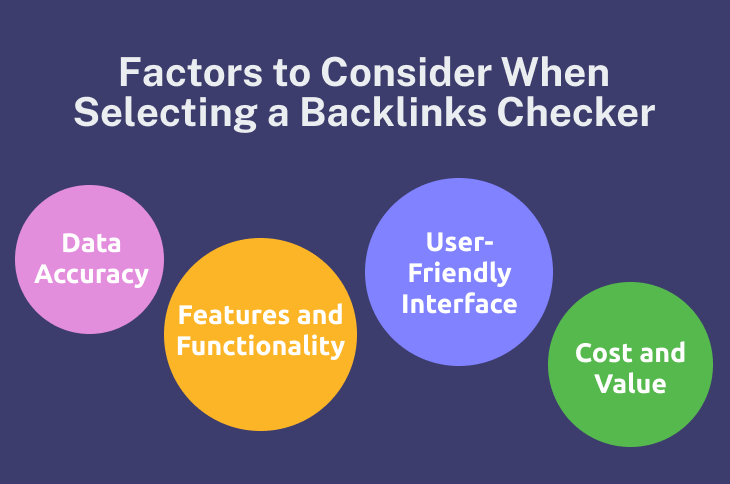Last Updated on February 8, 2025 by compman
Uncover the power of backlink analysis with our ultimate guide to using a backlinks checker. This comprehensive article delves into the intricacies of backlink analysis, providing valuable insights and practical guidance for readers of all levels. Whether you’re a beginner looking to understand the basics or an experienced marketer seeking advanced strategies, this guide has you covered.
What is a Backlinks Checker?

A backlink, also known as an inbound or incoming link, is a link from one website to another. In the context of search engine optimization (SEO), backlinks are crucial as they are viewed by search engines as a vote of confidence in the quality and relevance of a website. The more high-quality backlinks a website has, the more likely it is to rank well in search engine results pages (SERPs).
A backlinks checker is a tool that allows website owners, marketers, and SEO professionals to analyze the backlink profile of a website. It provides valuable insights into the quantity and quality of backlinks, the diversity of anchor text, and the overall health of a website’s backlink profile.
Historical Evolution of Backlink Checkers
Backlinks checkers have evolved significantly since their inception. Originally, these tools were basic utilities aimed at merely listing inbound links. Over the years, advancements in technology have introduced features that provide intricate insights into backlink quality, diversity, and relevance. This evolution was driven by search engines’ growing sophistication and the necessity for accurate analysis of increasingly complex backlink profiles. Today’s tools offer robust data visualization, integration with analytics platforms, and predictive insights that forecast SEO impacts, reflecting the industry’s commitment to precision and efficiency.
Importance of Backlinks in SEO
Backlinks play a significant role in SEO for several reasons. Firstly, they serve as a signal of trust and authority to search engines. Websites with a strong backlink profile are more likely to be considered reputable and relevant, thus improving their chances of ranking higher in search results.
Secondly, backlinks contribute to the discoverability of a website. When a website has backlinks from other reputable sites, it increases the likelihood of search engine crawlers finding and indexing the linked pages, ultimately leading to improved visibility in search results.
How Backlinks Affect Mobile SEO
As mobile usage surpasses desktop, the influence of backlinks on mobile SEO should not be underestimated. Search engines prioritize mobile-friendly websites, and backlink strategies should reflect this shift. High-quality backlinks contribute to faster indexing and enhanced discoverability on mobile platforms. Mobile SEO also benefits from locally relevant backlinks that emphasize geographical relevance, aligning with mobile users’ search intent. As page speed is a crucial factor for mobile users, backlinks from websites with optimized page speeds further enhance the SEO benefits.
Role of Backlinks Checker in Analyzing Backlink Profiles
A backlinks checker tool enables users to conduct a comprehensive analysis of a website’s backlink profile. By using a backlinks checker, users can identify the sources of backlinks, assess their quality, and understand the anchor text distribution. This information is invaluable for devising an effective SEO strategy, improving search engine rankings, and staying ahead of the competition.
How to Choose the Right Backlinks Checker
When selecting a backlinks checker, it’s essential to consider various factors to ensure that the chosen tool meets the specific needs and objectives of the user.
Factors to Consider When Selecting a Backlinks Checker

- Data Accuracy: The accuracy and comprehensiveness of the backlink data provided by the tool are crucial for making informed decisions.
- Features and Functionality: Look for features such as backlink analysis, anchor text analysis, referring domains analysis, and competitor analysis.
- User-Friendly Interface: A user-friendly interface and intuitive navigation are essential for efficient use of the tool.
- Cost and Value: Consider the cost of the tool in relation to the value it provides in terms of insights and analysis.
Popular Backlinks Checker Tools in the Market
Several backlinks checker tools are available in the market, each offering unique features and capabilities. Some of the most popular tools include Ahrefs, Moz Link Explorer, SEMrush, Majestic, and cognitiveSEO.
Comparison of Features and Pricing
Before choosing a backlinks checker tool, it’s important to compare the features and pricing of different options. Consider factors such as the size of the backlink index, frequency of data updates, ease of use, and pricing plans to make an informed decision.
Understanding Backlink Analysis
Once a backlinks checker tool has been selected, it’s important to understand how to interpret the data and derive actionable insights from the backlink analysis.
Interpreting Backlink Data
Backlink data typically includes information about the linking page, the target page, anchor text used, and the authority of the linking domain. Understanding how to interpret this data is crucial for identifying opportunities and addressing potential issues within the backlink profile.
Identifying High-Quality Backlinks
High-quality backlinks come from authoritative and relevant websites within the same industry or niche. By analyzing backlink data, users can identify these high-quality backlinks and prioritize them in their link building efforts.
Evaluating Anchor Text Diversity
Anchor text analysis is essential for understanding the relevance and context of backlinks. A diverse range of anchor texts indicates a natural link profile, while an overabundance of exact-match anchor texts may raise red flags with search engines.
Analyzing Referring Domains and IP Addresses
Examining the diversity of referring domains and IP addresses linking to a website is crucial for assessing the overall health and naturalness of the backlink profile. A high concentration of backlinks from a small number of domains or IP addresses may indicate a manipulative link building strategy.
Leveraging Backlink Analysis for SEO Strategy

With a solid understanding of backlink analysis, users can leverage the insights gained to enhance their SEO strategy and improve their website’s search engine rankings.
Ethical Link Building Practices
Adhering to ethical link building practices is fundamental to maintaining a website’s long-term authority. It entails fostering genuine partnerships and avoiding manipulative strategies such as link schemes or paid links, which violate search engine guidelines. Instead, focus on creating valuable content that naturally attracts backlinks from authoritative sources. Employ outreach strategies that build relationships with influential websites in your niche. Ethical practices not only prevent penalties but also ensure that the acquired backlinks enhance your website’s credibility and align with evolving search engine algorithms.
Using Backlink Analysis to Identify Link Building Opportunities
By identifying gaps and opportunities within the backlink profile, website owners and marketers can develop a targeted link building strategy to acquire high-quality backlinks from relevant and authoritative sources.
Disavowing Toxic Backlinks
Backlink analysis helps in identifying toxic or spammy backlinks that may harm a website’s SEO performance. By using the disavow tool in Google Search Console or equivalent methods in other search engines, users can request search engines to ignore these harmful backlinks.
Monitoring Competitor Backlink Profiles
Analyzing the backlink profiles of competitors provides valuable insights into their link building strategies and the sources of their backlinks. This information can be used to identify potential link opportunities and stay ahead in the competitive landscape.
Measuring the Impact of Backlink Building Efforts on Search Rankings
Regular backlink analysis allows users to track the impact of their link building efforts on search rankings. By monitoring changes in the backlink profile and correlating them with search engine performance, users can gauge the effectiveness of their SEO strategy and make necessary adjustments.



